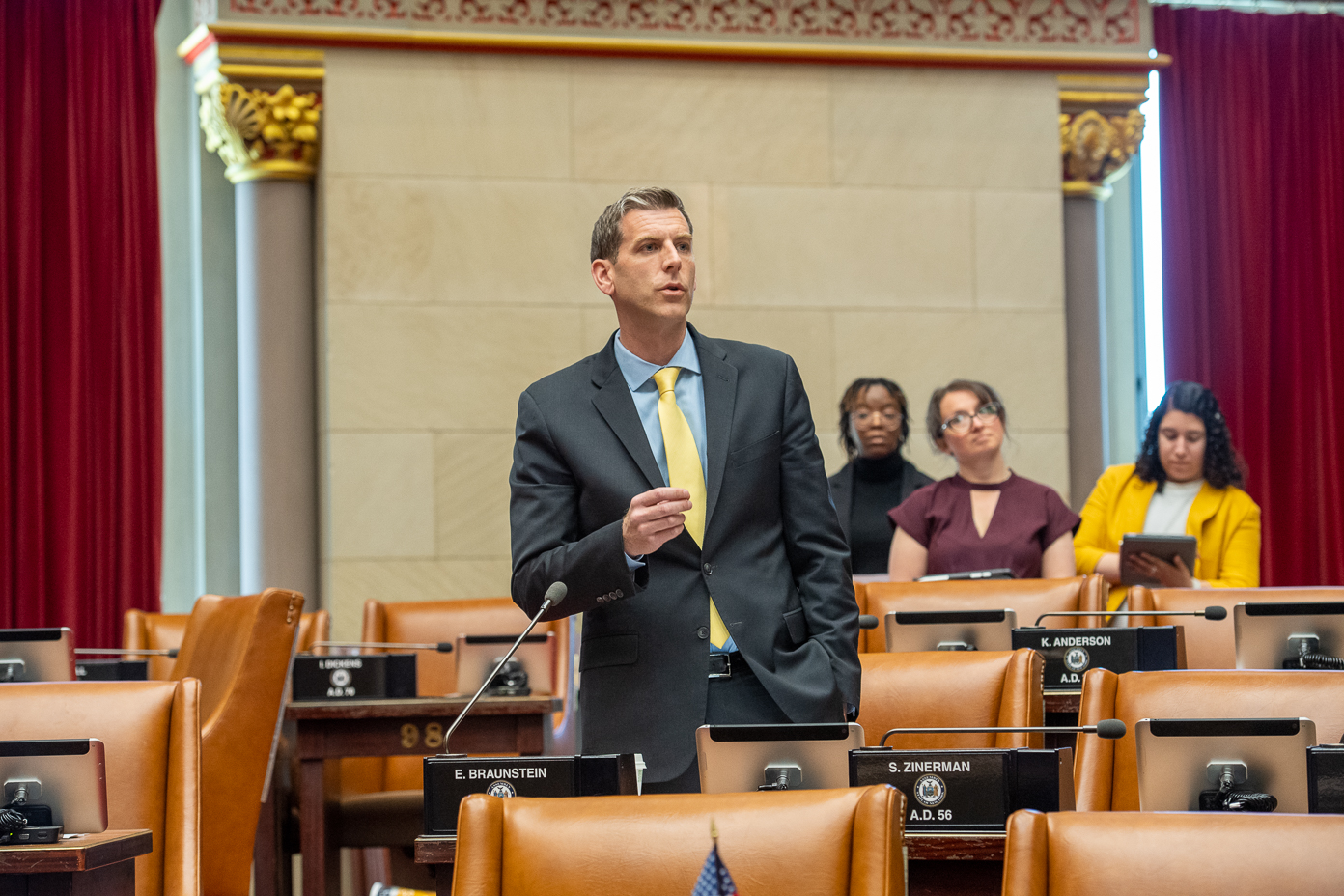Assemblyman Braunstein Announces Public Safety Measures, Historic Education Funding, Defeat of Housing Compact and More in NYS Budget
Albany, NY – On Tuesday evening, Assemblyman Edward C. Braunstein (D-Bayside) and the New York State Legislature completed passing the State Fiscal Year 2023-24 Budget. Braunstein, who serves as Chair of the Cities Committee, issued the following statements on various provisions included within the state budget:
Public Safety: “In Northeast Queens and in communities throughout the state, New Yorkers’ call to action has been clear: improve public safety. In this year’s budget, I pushed for changes to the state bail laws that will provide judges greater discretion to set bail for those accused of serious crimes and repeat offenders, as well as greater discretion to set pretrial release conditions. The budget also makes major funding investments towards public safety, including over $110 million for anti-gun violence programs and $66.7 million to increase the number of State Police academy classes. It also provides $170 million to support improvements to the discovery process to help ensure that the criminal justice system runs fairly and efficiently. This multi-pronged approach will help improve public safety and keep New Yorkers safe.”
Housing: “As Chair of the Cities Committee, I had significant concerns with elements of the Governor’s ‘Housing Compact’, which proposed several measures that would have overridden local governments and circumvented local zoning processes. I expressed these concerns early on in the budget process, as did many of my constituents, who reached out to my office, petitioned and held rallies to voice their opposition to this top-down approach. In response, I proposed a plan that both respects home rule and offers local governments incentives to build needed housing. In the final budget, the Assembly rejected the inclusion of the Housing Compact, including transit-oriented development and accessory dwelling units. I look forward to continuing the conversation on housing with the Governor and my colleagues and working to achieve a long-term plan that will increase housing stock while engaging municipalities and local stakeholders in all stages of the process.”
Affordability for Working Families: “This year’s state budget includes several measures that will serve to combat the rising cost of living and uplift New York’s working families. The budget includes the expansion of the Empire State Child Tax Credit to include children under 4 years of age. It also increases the minimum wage to $17 by 2026 in NYC, with annual increases indexed to inflation in the following years. The Legislature also continued its commitment to improving access to affordable childcare by expanding the State Child Care program eligibility to families earning up to 85 percent of the state median income. These measures will help keep more money in the pockets of New York’s working families.”
Education: “Students and teachers must have every resource they need to succeed. In order for New York State to thrive in the decades ahead, we must prioritize investments in education. That’s why this year’s budget increases education funding by $3 billion and fully funds Foundation Aid for the first time ever – a historic investment in our public schools. Additionally, an increase in nonpublic school STEM Program funding by $15 million will help ensure that all New York students have the tools they need to have a bright future.”
AAPI Funding: “To combat a rise in bias-related crimes and to better meet the needs of Asian American and Pacific Islander New Yorkers, the state budget establishes a $30 million AAPI Equity Budget. I celebrate this historic funding investment, which is earmarked to support AAPI social service programs, crisis intervention and community-based programming throughout New York State.”

